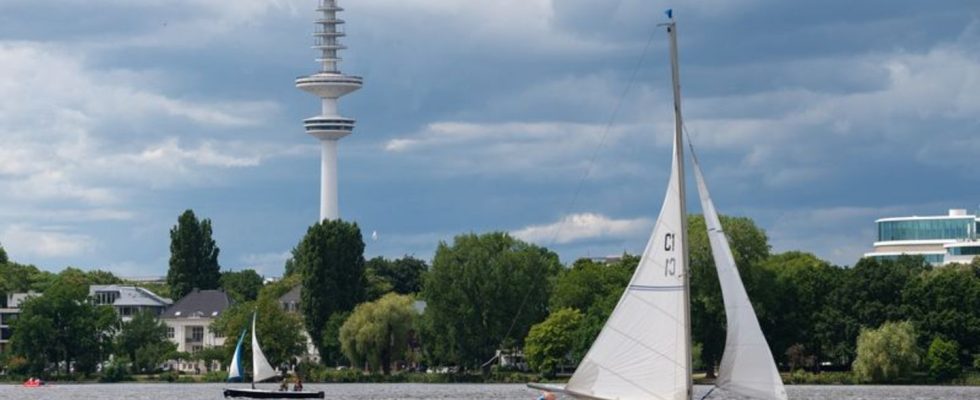study
Germans love their sofa – but culture and sport are also booming
Sailing on the Alster: Germans have less time for leisure activities. photo
© Jonas Walzberg/dpa
Cooking or games evenings at home are trendy – but the Germans also have a lot of catching up to do after Corona: Then they go to the theatre, the cinema or the gym. Only one place cannot benefit.
The consequences of According to a new study, the corona pandemic continues to make itself felt in the leisure activities of Germans.
“Citizens surf the Internet, get information, entertainment or entertainment from the television program, are on the move in social networks, make phone calls, text or stream. Their own couch is thus becoming the epicenter of modern leisure activities,” said Prof. Ulrich Reinhardt on Tuesday in Hamburg at the presentation of the “Leisure Monitor 2023”. The survey has been collected by British American Tobacco’s (BAT) Futures Foundation for more than 40 years.
As in the past four years, “Using the Internet” was number 1 in the ranking of the most popular leisure activities. Of every 100 respondents, 97 stated that this was a regular leisure activity (at least once a week). “Television” (84), “listening to music” (83), “dealing with PC, laptop, tablet” (82) and “reading or writing e-mails” (81) came in second. This is followed by “playing on the mobile phone” (78), “listening to the radio” (72) and “following your own thoughts” (72). “Television remains very popular, but in the long run it hardly stands a chance against the Internet,” said Reinhardt.
According to the study, joint activities with partners, friends and family also like to take place in the home environment – be it cooking or games evenings, time for conversation, sociable or cozy evenings. “In a time and world that is often characterized by external influences and fast pace, the organization of leisure time at home is becoming more and more important – be it as a source of relaxation, personal interests and interpersonal connections,” said Reinhardt, head of the Foundation, endowment.
culture boom
Cultural leisure activities – from museums and concerts to cinema screenings and amusement parks – are also becoming increasingly popular with many Germans, albeit at a much lower level than domestic activities. “The need to catch up after the Corona period still plays a major role here,” said Reinhardt. Only discotheques and clubs could not benefit from the culture boom. If the dance floors were once the epitome of nightlife and social meeting places, they are now visited far less often than ten years ago.
Sports activities such as walking or jogging are also carried out much more frequently than ten years ago. “Many citizens lace up their running shoes, put on their swimming goggles or visit a gym,” said Reinhardt. On the one hand, this is due to increasing health awareness and, on the other hand, to the increased need for exercise and for a balance between work and leisure time at a desk or computer screen.
According to the study, citizens have less time for interpersonal relationships – be it with neighbors, children or grandparents. This is also due to the fact that people have an average of half an hour less free time compared to the first Corona year 2020. While people could spend an average of 4 hours and 19 minutes a day on their personal activities three years ago, that time has now fallen to 3 hours and 55 minutes, the study found.
The change can be attributed to various factors. “One of the main reasons is less home office. Although many companies still offer their employees the opportunity to spend part of their working hours at home, many also return to the company. The corresponding travel times are not included in the leisure budget,” said Reinhardt. The proportion of commitments has also increased – be it shopping in the supermarket, meetings with family members or the hours as a trainer in the club.

